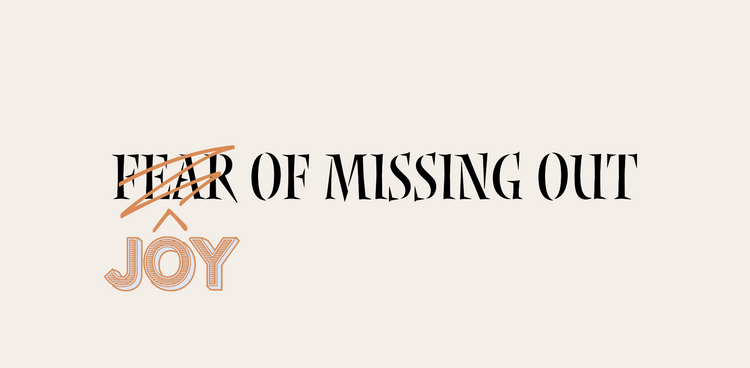Cooperation with the Inevitable

Last Monday, I was supposed to be as energetic as ever. First day of my last semester in Honours, a big big sprint with thesis submission and final exams at the end, the results ultimately deciding whether you get into the highly competitive Master's Programme or not.
Last Monday, I woke up with a scratch in my throat and a bit of fatigue. I did some work on my thesis, but not quite with the energy that I'd hoped. On Tuesday, a headache said hello as well. By Wednesday, it was clear that it's a sinus infection and from Thursday on, I had to cancel everything and rot in bed.
Now, if I consider any given year, it seems perfectly acceptable that I'll be sick for two or three weeks. While I'd love to be healthy all of the time, being sick every once in a while seems like the price of admission for being a human - and it's one I'll gladly pay to play. At least, I'll gladly pay in the abstract.
Ask me in a week where I'm actually sick and my harmonious cooperation with the inevitable crumbles. Not this week! I've got a marathon to run on Sunday - can't do that with sinusitis. I was supposed to start the semester strong so I can carry the momentum all the way through. Now I'm already a week behind, I have to move my internal deadlines, and so on and so forth. Woe and despair.
This seems a bit silly, no? That great wisdom, the noble acknowledgement of the human condition - Where did it go? How come it disappears when I need it most, leaving my internal manager to run overtime trying to feverishly optimise my actions to still do as much as possible (or at least make me feel guilty about not being able to).
Well, turns out the wisdom just lives in a different post code. The brain has many many functions, and they're called upon for many different tasks. Truth is simply that the same question ("Is this perfectly acceptable?") are are answered by different networks at different times.
When things are abstract, the prefrontal cortex is your guy for the job. This is the part of the brain that evolved last, the part that sets us apart from the rest of the animal kingdom, and abstraction is exactly why. No dog will ever be able to tell you whether he's cool with the idea of being sick every once in a while - but a human can. And considering that humans have been getting the sniffles since the dawn of time, the idea that you (a human) might get the sniffles doesn't seem like the most fruitful thing to dispute. Cooperation with the inevitable, in the abstract, just saves you a lot of wasted energy. But we don't live in the abstract.
On a sick Thursday, what drives your attention is the salience network. This (much older) network doesn't care about philosophical propositions or statistical probabilities - it evolved before we were able to do either. It's simply a neural alarm bell and its job is to scream "THIS MATTERS RIGHT NOW!".
On a sick Thursday, it does exactly what it's meant to do: Make the immediate feel maximally important. The ability for mental time travel is reserved for the prefrontal cortex. Without this temporal zoom function, it's hard to see that this missed week is negligible in a lifetime of learning, that within the context of a year this week of sickness is as predictable as summer and winter. Instead, what remains salient (i.e., top of mind) is that in this moment is this: Something is wrong and it needs fixing. Which, to be fair, isn't even a design flaw. After all, when you're currently running from an angry, big and hungry sir or madam, you don't wan't your brain to philosophise on how death is a natural part of the cycle of life.
All this to say: When you're going through it, wisdom won't get you far. And to be fair, being sick is probably always going to suck¹. But this is not to say the prefrontal cortex and its mental time travel are entirely useless, only good for entertainment when the Lion went to sleep. We can make use of this time travel to plan, and hopefully make it suck a little bit less.
- a week for sickness
- 1-2 surprising redirections
- 4-5 "for no good reason" low energy days
If I miraculously stay healthy and everything remains on track, I can say just a big "Thank you" for my many blessings. But if the next sickness comes along, I can consult my budget (yes, I plan to actually make this something I can tick off) and admire my wisdom for planning in advance². Of course, this doesn't take away the actual headache of a sinus infection - but I'm hoping it helps with the added headache of guilt because I'm "losing a week". We'll see how it works.
1 This is where we meet psychoneuroimmunology. Truth is that, as much as we love to imagine consciousness as this pure, soul-like flame of reason that flickers above the messy biology of "your" body (as if the organism were something you have, not something you are), in reality it is more akin to the monitor of a computer: It is simply what it's like to be that organism. So while I'm in no position to make conclusive statements about what consciousness is, there is good evidence that inflammation directly affects mood and cognition (see here). Or in other words, when the organism is affected by something, this reflects in thoughts and feelings just like it reflects in a runny nose. The two aren't as distinct as we commonly think. So while you (or I) may be wonderfully balanced in a healthy state, where cortisol levels are regular and cytokines few and far between, everything looks (and feels) a bit different.
2 Now, it probably won't be enough: Hofstadter's law states that "it always takes longer than you expect, even when you take into account Hofstadter’s Law". But since it always takes longer than you expect, no harm in starting somewhere.




Comments ()